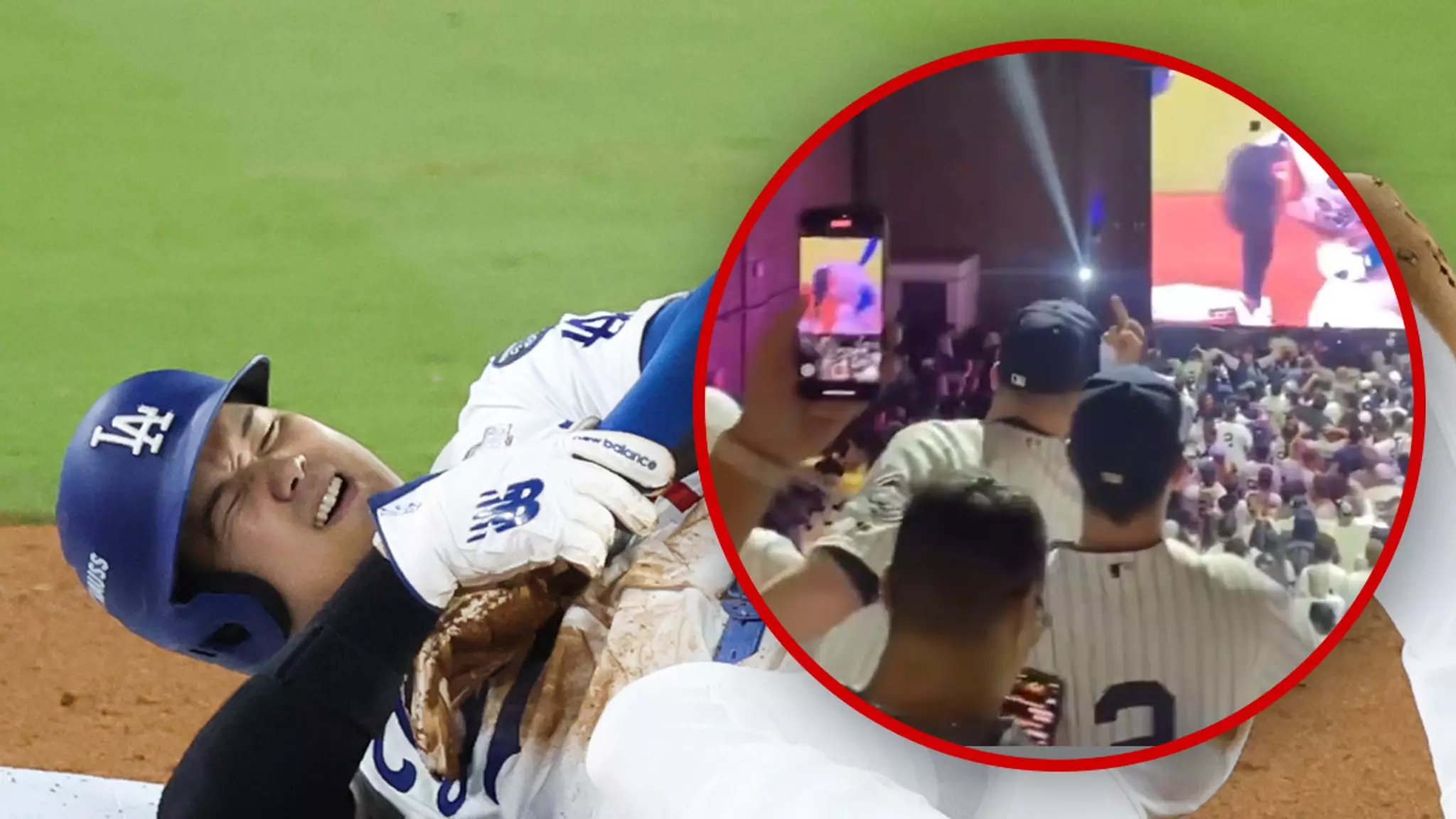On a fateful Saturday night at Dodger Stadium, the collective gasp of disbelief from fans echoed throughout the venue as they witnessed an agonizing moment: Shohei Ohtani, one of the MLB’s brightest stars, partially dislocating his shoulder. In a pivotal match against their age-old rivals, the Los Angeles Dodgers triumphed 4-2, yet the victory felt overshadowed by the shocking injury that rendered the stadium momentarily silent. Ohtani, who had been a driving force for the Dodgers, left the field clutching his shoulder in apparent agony, leaving fans concerned not just for the game, but for the future of their hero in the postseason.
While Dodger fans battled confusion and sorrow, a startling contrast unfolded miles away in the Bronx. A video captured moments of jubilation among Yankees supporters as Ohtani’s injury flashed across their screens. This response, characterized by cheers and applause, unveiled a darker side of sports fandom—one that prioritizes rivalry over sportsmanship. Within the confines of a Bronx bar, some fans seemed to take delight in another player’s misfortune—a scene that raises questions about respect within professional sports. Despite the nastiness of the reactions, it cannot be denied that for some, the potential sidelining of Ohtani presented an opportunity against a formidable opponent desperate to rally for a championship title.
The contrasting reactions, one of despair and another of foolish delight, shine a glaring light on the complexities of sports culture. While rivalries can fuel passionate support, the absence of decorum is alarming. The sight of fans celebrating a potential injury exposes a fundamental issue within sports communities: emotional attachments can sometimes lead to an almost cruel disregard for empathy. It’s essential for fans, regardless of allegiance, to recognize athletes’ vulnerability and humanity beyond their performances. Players like Ohtani represent not only the hopes of their teams but also the deep love and passion sport brings to communities worldwide.
With so much at stake during Ohtani’s first postseason appearance since entering Major League Baseball, the world is now left to wonder how this injury will affect his performance going forward. Dodgers manager Dave Roberts hinted at Ohtani’s potential return for Game 3, offering a glimmer of hope that the player might harness this unfortunate setback into a motivational force. If Ohtani is cleared to play, his presence could ignite a renewed energy among his teammates. As he prepares for the challenges ahead, this incident serves as a stark reminder that in the world of sports, every moment counts, and an athlete’s resiliency is as celebrated as their talent.
The unfolding narrative surrounding Ohtani’s injury serves as a microcosm of the intricate dynamics of sports fandom. While emotions such as competition can ignite passionate support, they should never eclipse a fundamental sense of humanity. As fans, reflecting on how we choose to express these emotions is crucial, particularly in light of the grueling experiences athletes endure to fulfill our sporting dreams.

